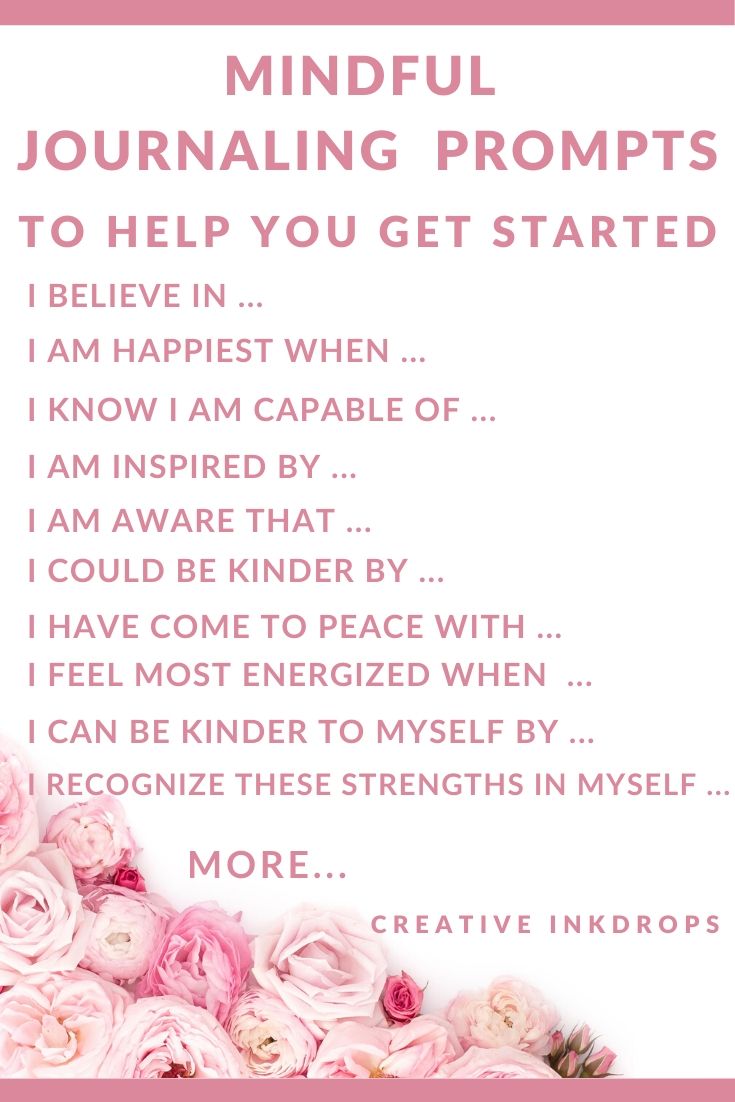Journaling Techniques To Power Up Your Writing
 After journaling for a while, you’re beginning to see the benefits first hand. What you need now are a few journaling techniques that will power up your writing so you benefit from it on a more consistent basis.
After journaling for a while, you’re beginning to see the benefits first hand. What you need now are a few journaling techniques that will power up your writing so you benefit from it on a more consistent basis.
These easy journaling techniques will help you get the maximum benefits from writing in your journal.
1. Start With a Quick Meditation Moment
Meditating for a few minutes quietens down the noise of your many thoughts clashing together. It helps you gather your thoughts and helps you be more prepared for a fruitful writing session.
You do not have to meditate for hours. A quick few minutes is enough. Start by taking deep breaths and focus on your inner thoughts and feelings.
You can use a variety of things to help you get in the mood for writing. Deep breathing, soft music, stretches or candles are all great ways to help get your creative juices flowing.
2. Date Your Entries
If you are only able to establish one habit when writing in your journal, it needs to be adding dates to all of your entries. This will allow you to reconstruct your entries chronologically by dates. It can also let you notice the silence in between certain entries.
3. Write Your Thoughts Down Quickly
Many people who journal regularly know all too well about the downside of “journaler’s block.” This is the same as writer’s block where your brain freezes and locks those thoughts and ideas in. You can lose those thoughts and ideas that you want to write down if you don’t get them out in time.
The best way to outsmart this block is to write everything down as fast as you can or as soon as you have a thought come to mind. Don’t tell yourself you will write it down later because you might miss your chance.
4. Be Honest With Yourself
Your own personal truth is not your enemy. You are writing for yourself, not for anyone else.
When you distort the truth, whether a little bit or a lot, intentionally or unintentionally, you are in effect talking yourself out of getting to know yourself better and trying to understand how you really feel about things.
Don’t do this.
For journaling to be effective, you have to give yourself permission to tell the truth about everything.
It is equally important to give yourself the grace to go at your own pace. If you are having a hard time facing your own truth, slowing it down a little may help you come to terms with it.
5. Write Naturally
The best thing about keeping a journal is that there are no rules to follow.
Don’t overthink what you are writing or how you are writing it and definitely do not take time to go back and edit or rewrite anything. The idea is to let your thoughts and writing flow out naturally.
Don’t worry about the grammar police turning up and trolling you about your lack of capitalizations or commas.
Write naturally, go with the flow, and enjoy the process. You will gain more from it than you realize.
6. Once You Get Started, Don’t Stop
When you start a new entry, it is best to start with the present moment. This could be what is going on in your life that day or that week. This helps to keep the thoughts and ideas flowing. Add in how you are feeling about everything going on as well.
When you come back to read old entries, you will find it easier to relive the moment if you were more descriptive about how you were feeling as things were happening in your life.
7. Keep and Read What You Write
Not everybody feels the need to go back and read what they have written. And that’s okay. The act of writing down your thoughts is therapeutic, whether you go back and read what you have written or you don’t.
For me, while I love the thought of going back and reading my earlier entries, I must admit I don’t do it as much as I’d like to. This could be for various reasons, but mainly it is because of lack of time.
However, when I do sit down and read what I’ve entered in my journal, I am always pleasantly surprised with how much or how little I knew before and how far I have come.
Try it for yourself. It’s only after this exercise that I understood the real meaning of hindsight. “If only I knew then what I know now” is a thought that often crosses my mind when I read some of my entries.
8. Stuck for Inspiration? Create a Template
One of the reasons many people give up journaling is because they are rushed for time. And in the little time they have, they get stuck for ideas on what to write.
If you find this happening to you often, consider creating a template for your journaling time. This way when you sit down to write you won’t have to wait for inspiration or try to come up with something new to say.
Here are some questions you can include on your template:
· What am I grateful for today?
· Who did I show kindness to?
· What I did learn from yesterday?
· How am I feeling?
· What’s one thing I want to do now?
These are just examples to get you started off. Try and come up with your own set of questions depending on where you are at the moment and where you want to be.
9. Have a Special Journal Spot
Let’s take two individuals – Jennifer and Christine.
Jennifer likes to journal from the comfort of her front porch during the early morning hours. She sits in her favorite wicker chair and sips her tea, often getting up early enough to watch the sunrise.
Christine tried to do the same thing but didn’t find the environment stimulating enough. She liked to be surrounded by people and the hum of conversation. So, she decided to make a local coffee shop her journaling spot and found it worked much better for her.
You may need to experiment with different environments to find one that works best for you.
10. Schedule a Time for Journaling
Schedule each journaling session like you would a doctor’s appointment or other events. By scheduling time to journal, you’re more likely to stick with it.
Of course, this doesn’t mean you have to make it a daily habit. Some people may enjoy journaling every morning but others may find that too frequent. The key is to create a schedule that works for you, whether that’s every single day or just two or three times a week.
Journaling might not feel natural at first, but don’t give up on it too fast. Instead, try some of the tips above. Pay attention to what works best for your personality and inspires you to write.
11. Protect Your Privacy
When you start writing in a journal, you must think of ways to protect your privacy. This is especially true if you plan to add thoughts that you don’t want anybody else to be privy to.
If you like to write online, you may consider getting a personal email set aside just for your journal entries.
Alternately, consider getting a flash drive to keep your entries on and make it password protected.
Knowing that there is no likelihood of anyone else reading your entries will encourage you to be more honest with yourself.
Download your free workbook filled with beautiful journal recommendations!






